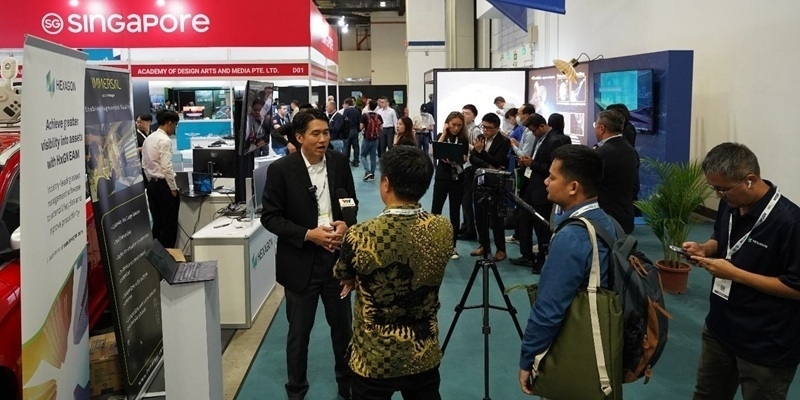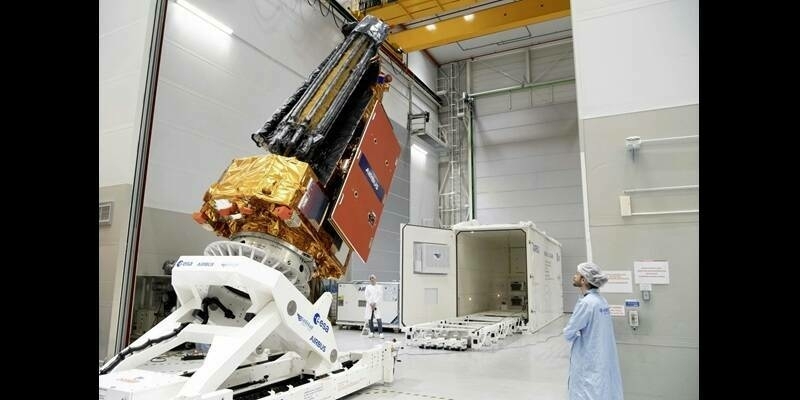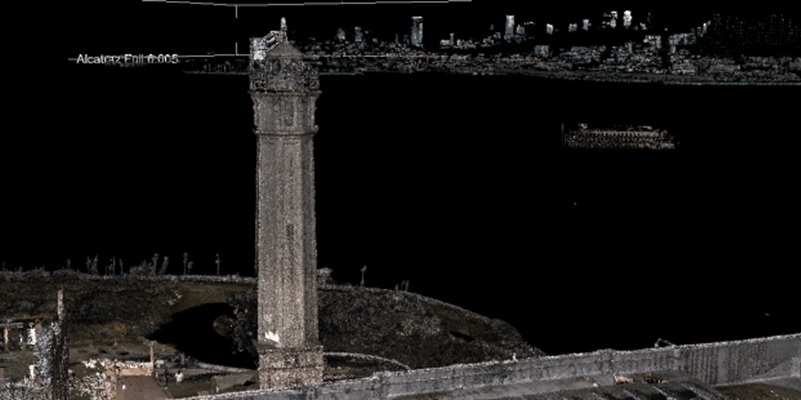The findings are the first to be released from Deutsche Telekom’s groundbreaking Sea Hero Quest project, a mobile game developed alongside Alzheimer’s Research UK and leaders in gaming, technology, academia and research.
This research aims to set new standards in dementia research, establishing the first ever global benchmark for human spatial navigation – a key indicator in the development and diagnosis of dementia.
More than 2.4 million people have now taken part in Sea Hero Quest since it launched in May 2016, generating over 63 years of gameplay – which equates to over 9,400 years’ worth of equivalent lab-based research in this area. The second largest study of this kind contained just 599 participants.
Dr Hugo Spiers of University College London has been leading the analysis of the anonymous player data. Initial findings presented today indicate that our spatial navigation abilities begin to decline from early adulthood (sample analysis began at 19) and that they continue on this trajectory across the lifespan. Those aged 19 were 74% likely to accurately hit a target during the game, whereas this figure had reduced to 46% amongst those aged 75. This progression is in stark contrast to previous smaller scale studies of around 100 people, which had suggested such a decline to be expected in later life. Memory, which is the current gold standard for dementia diagnosis, declines naturally with ageing, which can make it difficult to determine whether someone has dementia or poor memory due to getting older. Spatial navigation is another problem that people face in the early stages of dementia, and the team set out to use Sea Hero Quest to understand more about how this ability varies naturally across the general population.
The spatial navigation benchmark established by Deutsche Telekom’s Sea Hero Quest paves the way to being able to develop a test to detect the earliest spatial navigational changes in dementia. The long-term hope is that this could enable the diagnosis and treatment of patients far earlier with current and future pharmacological and non-pharmacological therapies.
When analysing completion of the ‘flare levels’ (path integration ability which assesses the ability to point back to the start of a novel route) in the game, men and women appear to have employed different spatial navigation strategies to complete the level. Key differences across the nations have also been found with several of the Nordic countries (Finland, Sweden, Norway, Denmark) appearing to have particularly noteworthy spatial navigation capabilities across the set of 193 nations of the world contributing to the sample. Understanding these points of difference is significant as it ensures such factors are accounted for during diagnosis and treatment, potentially leading to greater accuracy and efficacy.
“This is the only study of its kind, on this scale, to date. Its accuracy greatly exceeds that of all previous research in this area,” explains Dr. Hugo Spiers in discussing the game’s importance. “The findings the game is yielding have enormous potential to support vital developments in dementia research. The ability to diagnose dementia at early stages, well before patients exhibit any signs of general memory loss, would be a milestone. This study is thus now giving us the opportunity to make a real difference to the lives of millions of people living with dementia and those at risk of developing the disease in the future.”
Deutsche Telekom’s Sea Hero Quest will now be used to help both predict the onset of the dementia, as well as influence and track the impact the treatment of those already diagnosed with the condition. This will involve developing a new version of the game to allow for the identification of patients, on a device provided in a clinical setting. Patients will then be able to be tested and matched against the global population, accounting for variations in key demographics. Introducing Sea Hero Quest to a clinical setting allows for the measurement of potential improvements in spatial navigational abilities. It could therefore potentially be used in drug trials to assess the effectiveness of drug treatments.
Hilary Evans, Chief Executive of Alzheimer’s Research UK, which is co-funding the analysis of Sea Hero Quest data, said: “Problems with spatial navigation can often be an early warning sign of dementia and sadly we hear all too frequently of people getting lost and being found miles away from home. Researchers believe that these problems with spatial navigation could form the basis of a diagnostic test for the early stages of diseases like Alzheimer’s, which could add a valuable tool to a clinician’s diagnostic armoury. For any new diagnostic tool to be effective, it must take into account natural variation in a particular skill or ability across the population.
“The strength of Deutsche Telekom’s Sea Hero Quest is that it has provided unprecedented amounts of data on spatial navigation across the world’s population, which is not only revealing key insights into human behaviour but has the potential to inform the development of future diagnostic tests. Today’s results are only scratching the surface of the data from the game and focus on one type of level. While Sea Hero Quest is targeted towards the general population, it’s promising to see the game already being taken into a clinical setting to measure spatial navigation changes in people with dementia. Big data has the potential to address some of the most fundamental questions that remain in science and this project is a great example of how millions of people can contribute to research from the comfort of their own sofas.”
“These new insights into how humans navigate have only come as a result of a new kind of collaboration in dementia research. A health challenge as complex as dementia demands we approach studies innovatively, and the involvement of Deutsche Telekom proves that forward-thinking partners outside of the traditional research bubble can bring unique and powerful strengths. The early data that has very quickly been generated by Sea Hero Quest should inspire other corporations to consider what assets they might bring to research into dementia or any of our most seemingly intractable medical conditions.”
Further analysis of the data is still to be undertaken and is expected to take two years to complete. Later analyses of the research will also assess six other demographics tracked by the game including education level, handedness, self rated spatial navigation ability, the geographical environments in which players grew up, hours of sleep and amount of time spent travelling per day.
Dr. Axel Wehmeier, Managing Director of Telekom Healthcare Solutions says: “Our digital expertise, combined with the scientific knowledge and experience of our partners, has enabled a major step forward in dementia research. The initial results from this project confirm that we are heading in the right direction. Research is at its most efficient when powered by innovative cross sector collaborations such as this one. Now we are excited to announce that we have taken this one step further and are now working with the scientists to adapt Sea Hero Quest for use in a clinical setting.”
The game continues to be available for free download from the App Store and Google Play. And the data it produces are still being provided to participating scientists – and, thus, to the dementia research community.
Source: Alzheimer's Research UK
Subscribe to our newsletter
Stay updated on the latest technology, innovation product arrivals and exciting offers to your inbox.
Newsletter

